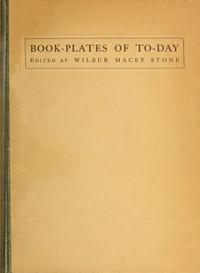Read this ebook for free! No credit card needed, absolutely nothing to pay.
Words: 6495 in 2 pages
This is an ebook sharing website. You can read the uploaded ebooks for free here. No credit cards needed, nothing to pay. If you want to own a digital copy of the ebook, or want to read offline with your favorite ebook-reader, then you can choose to buy and download the ebook.
BY CHAPTERS.
PAGE
XL. Farm Implements 237
L. Exchange and Distribution. 297
PREFACE
Men have written wisely and usefully, in illustration and aid of Agriculture, from the platform of pure science. Acquainted with the laws of vegetable growth and life, they so expounded and elucidated those laws that farmers apprehended and profitably obeyed them. Others have written, to equally good purpose, who knew little of science, but were adepts in practical agriculture, according to the maxims and usages of those who have successfully followed and dignified the farmer's calling. I rank with neither of these honored classes. My practical knowledge of agriculture is meager, and mainly acquired in a childhood long bygone; while, of science, I have but a smattering, if even that. They are right, therefore, who urge that my qualifications for writing on agriculture are slender indeed.
I only lay claim to an invincible willingness to be made wiser to-day than I was yesterday, and a lively faith in the possibility--nay, the feasibility, the urgent necessity, the imminence--of very great improvements in our ordinary dealings with the soil. I know that a majority of those who would live by its tillage feed it too sparingly and stir it too slightly and grudgingly. I know that we do too little for it, and expect it, thereupon, to do too much for us. I know that, in other pursuits, it is only work thoroughly well done that is liberally compensated; and I see no reason why farming should prove an exception to this stern but salutary law. I may be, indeed, deficient in knowledge of what constitutes good farming, but not in faith that the very best farming is that which is morally sure of the largest and most certain reward.
I hope to be generally accorded the merit of having set forth the little I pretend to know in language that few can fail to understand. I have avoided, so far as I could, the use of terms and distinctions unfamiliar to the general ear. The little I know of oxygen, hydrogen, nitrogen, &c., I have kept to myself; since whatever I might say of them would be useless to those already acquainted with the elementary truths of Chemistry, and only perplexing to others. If there is a paragraph in the following pages which will not be readily and fully understood by an average school-boy of fifteen years, then I have failed to make that paragraph as simple and lucid as I intended.
Many farmers are dissuaded from following the suggestions of writers on agriculture by the consideration of expense. They urge that, though men of large wealth may profitably do what is recommended, their means are utterly inadequate: they might as well be urged to work their oxen in a silver yoke with gold bows. I have aimed to commend mainly, if not uniformly, such improvements only on our grandfathers' husbandry as a farmer worth ,000, or over, may adopt--not all at once, but gradually, and from year to year. I hope I shall thus convince some farmers that draining, irrigation, deep plowing, heavy fertilizing, &c., are not beyond their power, as so many have too readily presumed and pronounced them.
We need to mingle more thought with our work. Some think till their heads ache intensely; others work till their backs are crooked to the semblance of half an iron hoop; but the workers and the thinkers are apt to be distinct classes; whereas, they should be the same. Admit that it has always been thus, it by no means follows that it always should or shall be. In an age when every laborer's son may be fairly educated if he will, there should be more fruit gathered from the tree of knowledge to justify the magnificent promise of its foliage and its bloom. I rejoice in the belief that the graduates of our common schools are better ditch-diggers, when they can no otherwise employ themselves to better advantage, than though they knew not how to read; but that is not enough. If the untaught peasantry of Russia or Hungary grow more wheat per acre than the comparatively educated farmers of the United States, our education is found wanting. That is a vicious and defective if not radically false mental training which leaves its subject no better qualified for any useful calling than though he were unlettered. But I forbear to pursue this ever-fruitful theme.
I look back, on this day completing my sixtieth year, over a life, which must now be near its close, of constant effort to achieve ends whereof many seem in the long retrospect to have been transitory and unimportant, however they may have loomed upon my vision when in their immediate presence. One achievement only of our age and country--the banishment of human chattelhood from our soil--seems now to have been worth all the requisite efforts, the agony and bloody sweat, through which it was accomplished. But another reform, not so palpably demanded by justice and humanity, yet equally conducive to the well-being of our race, presses hard on its heels, and insists that we shall accord it instant and earnest consideration. It is the elevation of Labor from the plane of drudgery and servility to one of self-respect, self-guidance, and genuine independence, so as to render the human worker no mere cog in a vast, revolving wheel, whose motion he can neither modify nor arrest, but a partner in the enterprise which his toil is freely contributed to promote, a sharer in the outlay, the risk, the loss and gain, which it involves. This end can be attained through the training of the generation who are to succeed us to observe and reflect, to live for other and higher ends than those of present sensual gratification, and to feel that no achievement is beyond the reach of their wisely combined and ably self-directed efforts. To that part of the generation of farmers just coming upon the stage of responsible action, who have intelligently resolved that the future of American agriculture shall evince decided and continuous improvement on its past, this little book is respectfully commended.
H. G.
Free books android app tbrJar TBR JAR Read Free books online gutenberg
More posts by @FreeBooks

: The Vicissitudes of Evangeline by Glyn Elinor - Young women Fiction; Love stories; Diary fiction; English fiction 20th century










